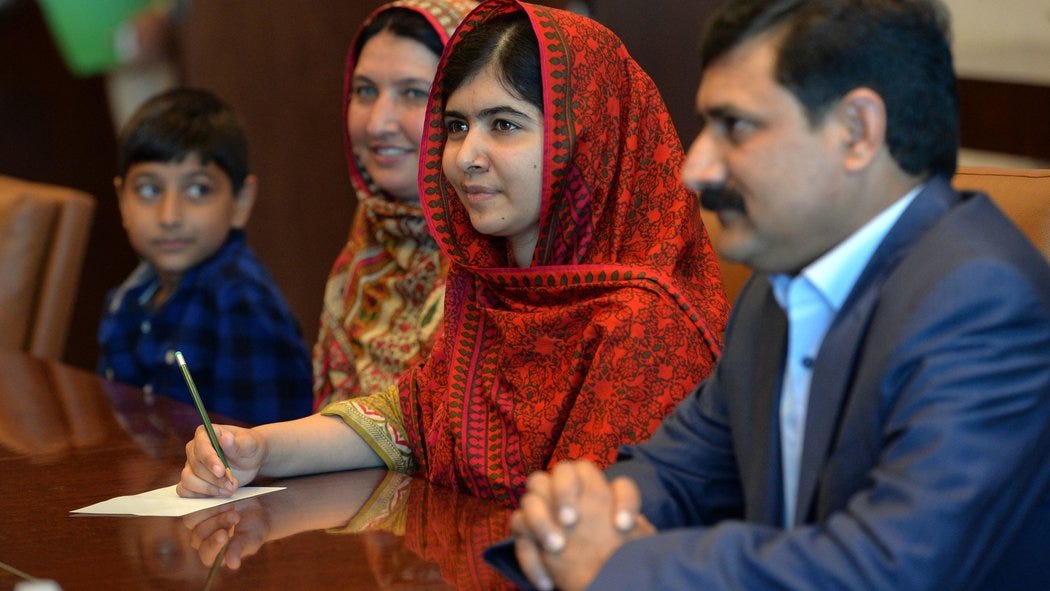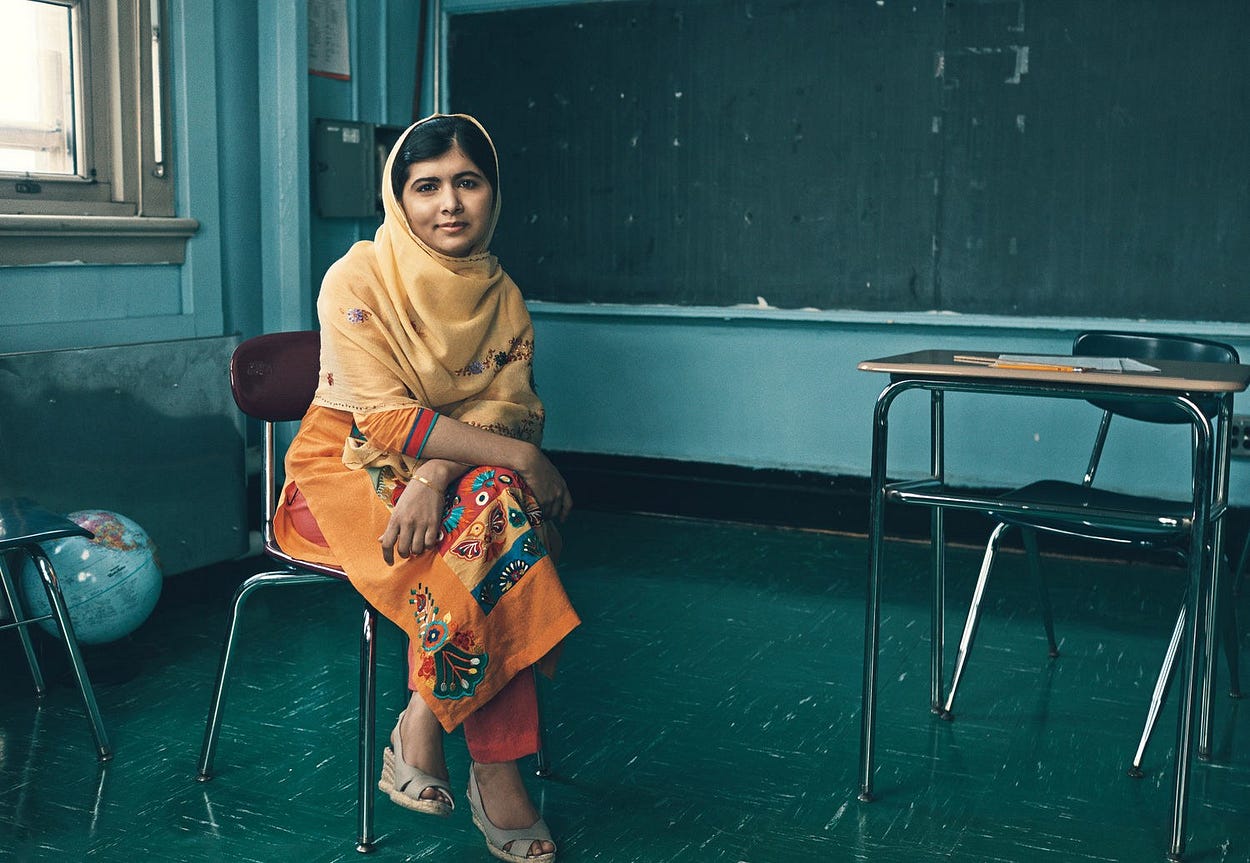Malala Yousafzai tweets for the first time, gets thousands of followers within minutes
- By Web Desk -
- Jul 07, 2017

Pakistan’s brave daughter Malala Yousafzai has tweeted for the first time from her official Twitter account and is gaining followers in thousands within minutes after the tweet.
Her Twitter account has gained almost 107K followers from her first tweet till the filing of this report. She joined the micro-blogging site back in November 2012 but didn’t tweet since then. All her activities were covered by Malala Fund, the organisation she founded.
Hi, Twitter.
— Malala (@Malala) July 7, 2017
Today is my last day of school and my first day on @Twitter [THREAD]
— Malala (@Malala) July 7, 2017
Graduating from secondary school (high school) is bittersweet for me. I’m excited about my future, but… 2/
— Malala (@Malala) July 7, 2017
Next week, I will be back on my #GirlPowerTrip to meet girls in Middle East, Africa & Latin America. 4/
— Malala (@Malala) July 7, 2017
Each girl’s story is unique — and girls’ voices are our most powerful weapons in the fight for education and equality. 5/
— Malala (@Malala) July 7, 2017
On and off Twitter, I’m fighting for girls — will you join me?✋🏾 6/
— Malala (@Malala) July 7, 2017
This is not all, Malala marked her last day at school by a blog on her site, which are a summary of her tweets and resolve.
“This morning I go back to class after my stressful final exams that ended last week. Today is my last day of secondary school.
I enjoyed my school years and I am excited for my future. But I can’t help thinking of millions of girls around the world who won’t complete their education.
I was almost one of those girls. The Taliban took over our beautiful home in Swat Valley and declared a ban on girls’ education. Our teachers told us to stop wearing our uniforms because it wasn’t safe. Every day I wondered if this would be my last day of school.
Then came the day I dreaded most. I could no longer go to school. When my family fled our home, I worried I was leaving behind more than books and pens — I feared I was leaving behind my dreams for the future .
I have often said that I share my story not because it is unique — but because it is not. The fear I had then is still felt today by 130 million out-of-school girls around the world.
I was able to continue my education when the situation in my hometown got better, but I will never forget how it felt to have my future taken away from me.
I promise to keep fighting until the day that every girl can put on her uniform, pack up her books and walk to school without fear,” reads the blogpost.
ABOUT MALALA
Malala was born on 12 July 1997 in Mingora, a town in the Swat District of north-west Pakistan. Her father, Ziauddin Yousafzai named her after Malalai, a Pashtun heroine.
Ziauddin, who has always loved learning, ran a school in Swat adjacent to the family’s home. He was known as an advocate for education in Pakistan, which has the second highest number of out of school children in the world, and became an outspoken opponent of Taliban efforts to restrict education and stop girls from going to school.
Becoming an Education Activist
Malala shared her father’s passion for learning and loved going to school. In 2009, as the Taliban’s military hold on Swat intensified, Malala began writing a blog for the BBC Urdu service under a pseudonym, about fears that her school would be attacked and the increasing military activity in Swat. Television and music were banned, women were prevented from going shopping and then Ziauddin was told that his school had to close.
Malala and her father received death threats but continued to speak out for the right to education. Around this time, Malala was featured in a documentary made for The New York Times and was revealed as the author of the BBC blog.

Pakistan’s First National Youth Peace Prize
In 2011, she received Pakistan’s first National Youth Peace Prize and was nominated by Archbishop Desmond Tutu for the International Children’s Peace Prize. In response to her rising popularity and national recognition, Taliban leaders voted to kill her.
Attacked for Going to School
On 9 October 2012, as Malala and her friends were travelling home from school, a masked gunman entered their school bus and asked for Malala by name. She was shot with a single bullet which went through her head, neck and shoulder. Two of her friends were also injured in the attack.
Malala survived the initial attack, but was in a critical condition. She was moved to Birmingham in the United Kingdom for treatment at a hospital that specialises in military injuries. She was not discharged until January, 2013 by which time she had been joined by her family in the UK.
The Taliban’s attempt to kill Malala received worldwide condemnation and led to protests across Pakistan. In the weeks after the attack, over 2 million people signed a right to education petition, and the National Assembly swiftly ratified Pakistan’s first Right To Free and Compulsory Education Bill.

Nobel Peace Prize
Malala accepted the Nobel Peace Prize on 10 December, 2014 with Indian children’s rights and education advocate Kailash Satyarthi. Malala contributed her entire prize money of more than $500,000 to financing the creation of a secondary school for girls in Pakistan.

